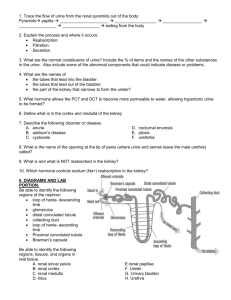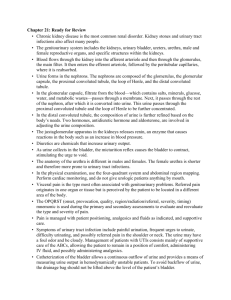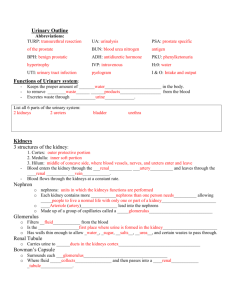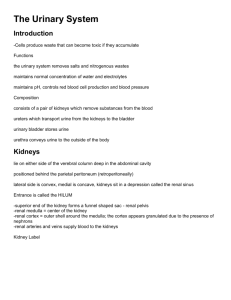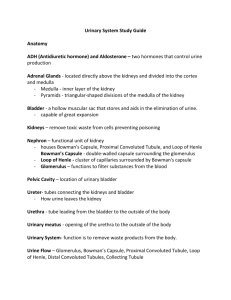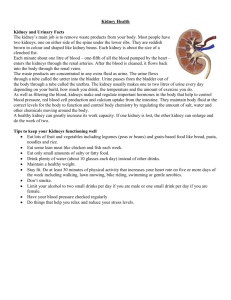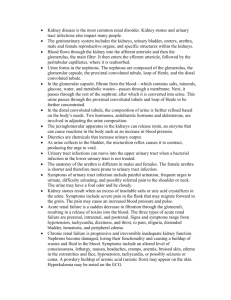The_Urinary_System
advertisement
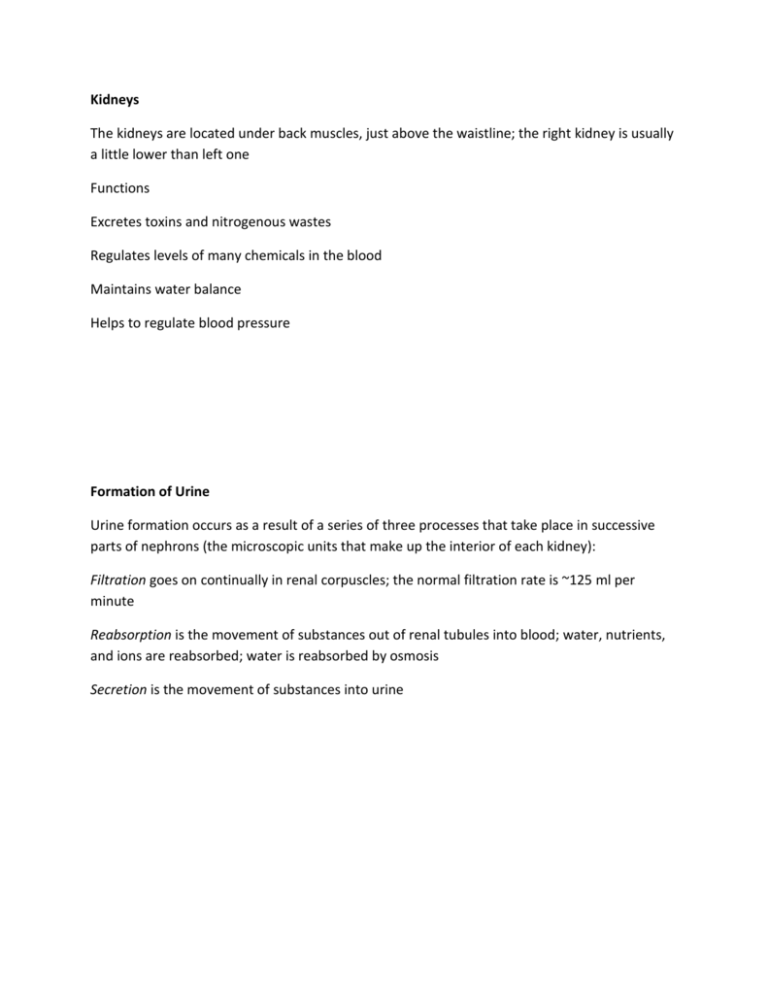
Kidneys The kidneys are located under back muscles, just above the waistline; the right kidney is usually a little lower than left one Functions Excretes toxins and nitrogenous wastes Regulates levels of many chemicals in the blood Maintains water balance Helps to regulate blood pressure Formation of Urine Urine formation occurs as a result of a series of three processes that take place in successive parts of nephrons (the microscopic units that make up the interior of each kidney): Filtration goes on continually in renal corpuscles; the normal filtration rate is ~125 ml per minute Reabsorption is the movement of substances out of renal tubules into blood; water, nutrients, and ions are reabsorbed; water is reabsorbed by osmosis Secretion is the movement of substances into urine Ureters Long, narrow tubes with expanded upper ends located inside the kidney, the ureters are lined with mucous membrane and have a muscular layer They drain urine from the kidneys to the urinary bladder Urinary Bladder Structure The urinary bladder is an elastic, muscular organ, lined with mucous membrane and capable of great expansion Functions It stores urine before voiding Urethra Structure The urethra is a narrow, mucous membrane-lined tube that extends from the urinary bladder to the exterior of the body Functions Passage of urine from the bladder Passage of male reproductive fluid (semen) Micturition is the passing of urine from the body (also called urination or voiding) Regulatory sphincters Internal urethral sphincter (involuntary) External urethral sphincter (voluntary) The bladder wall permits the storage of urine with little increase in pressure Micturition Emptying reflex Initiated by a stretch reflex in the bladder wall: the bladder wall contracts, the internal sphincter relaxes, the external sphincter relaxes, and urine flows Enuresis: involuntary urination in young child Urinary retention: urine produced but not voided Urinary suppression: no urine produced but bladder is normal Incontinence: urine is voided involuntarily Renal and Urinary Disorders Obstructive disorders interfere with normal urine flow, possibly causing urine to back up and cause kidney damage Renal calculi (kidney stones) may block ureters, causing intense pain called renal colic Tumors: renal cell carcinoma (kidney cancer) and bladder cancer are often characterized by hematuria (blood in the urine) Urinary tract infections (UTIs) are caused by bacteria Kidney failure (renal failure) occurs when the kidneys fail to function Acute renal failure is an abrupt reduction in kidney function that is usually reversible Chronic renal failure is a slow, progressive loss of nephrons caused by a variety of underlying diseases Early in this disorder, healthy nephrons often compensate for the loss of damaged nephrons Loss of kidney function ultimately results in uremia and its life-threatening consequences Complete kidney failure results in death unless a new kidney is transplanted or an artificial kidney substitute is used (dialysis)
